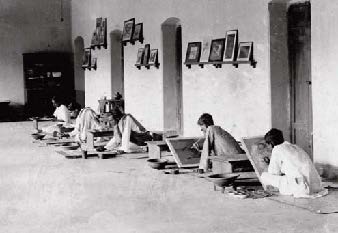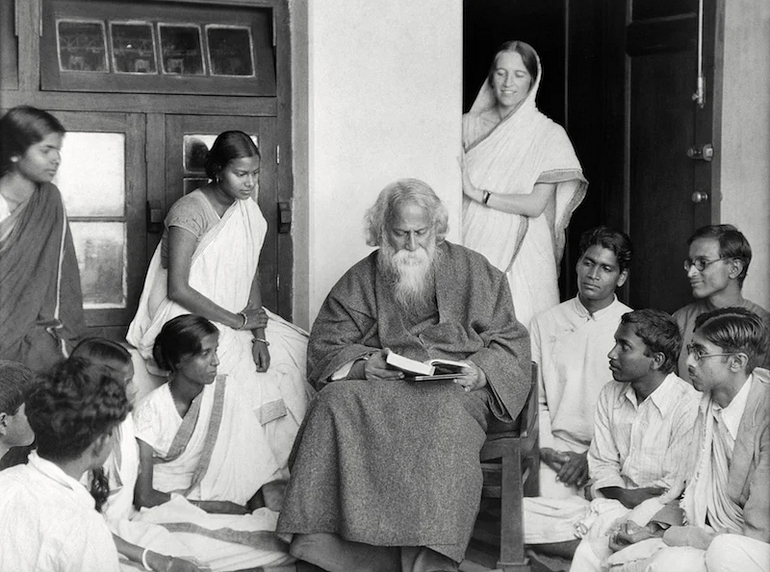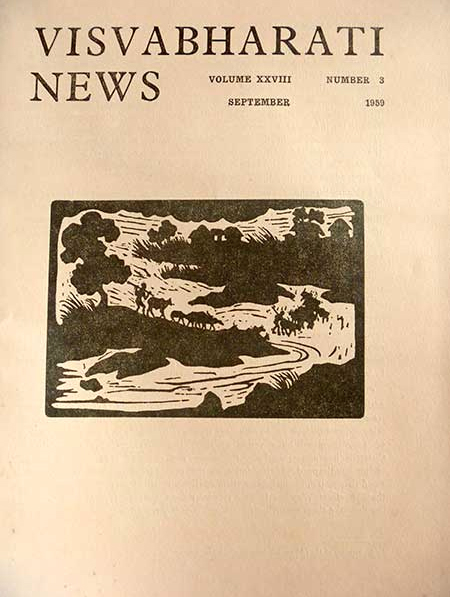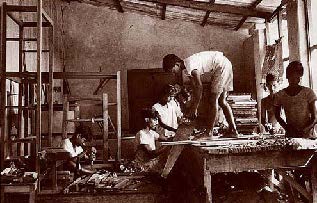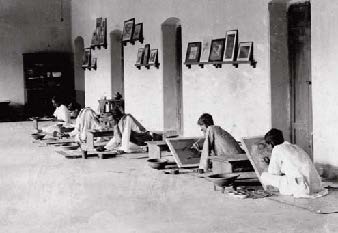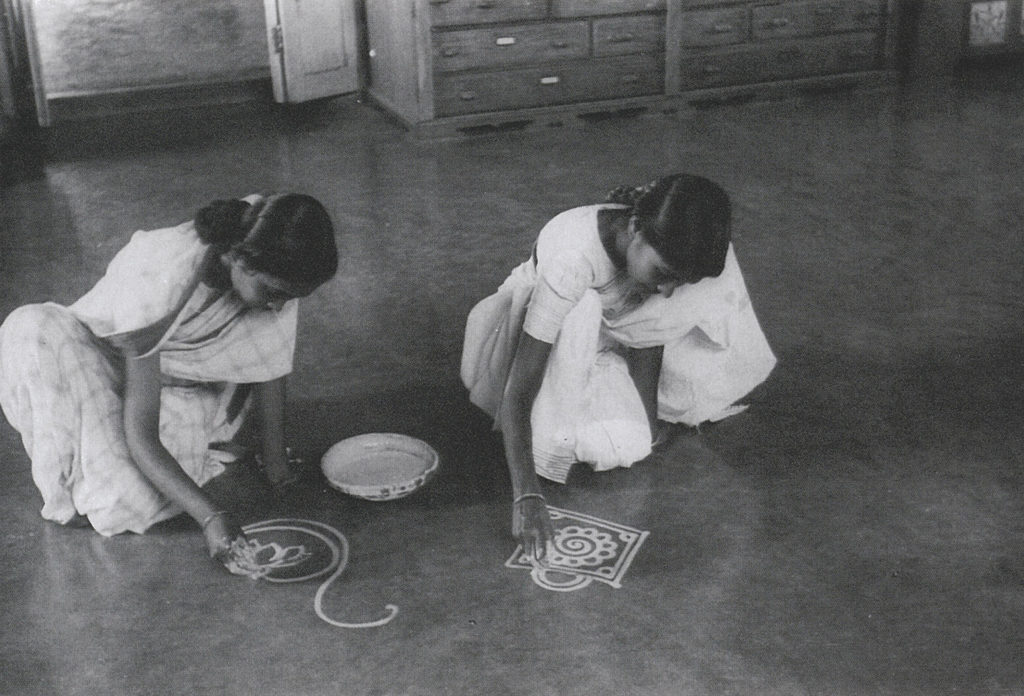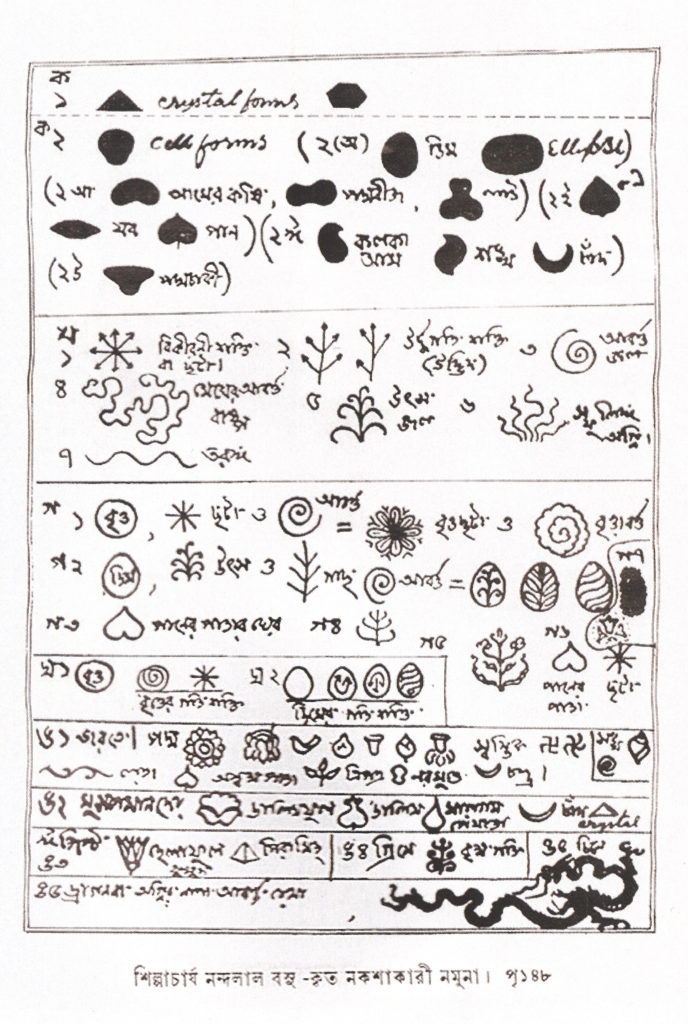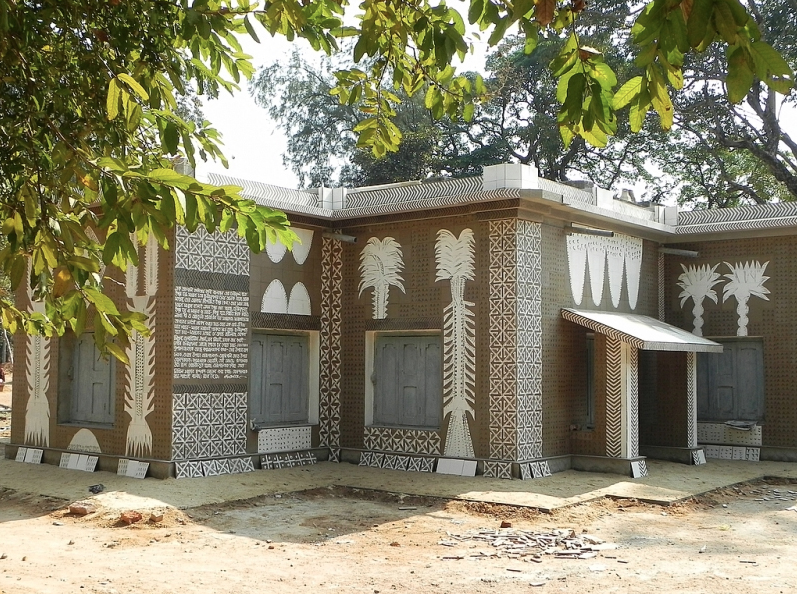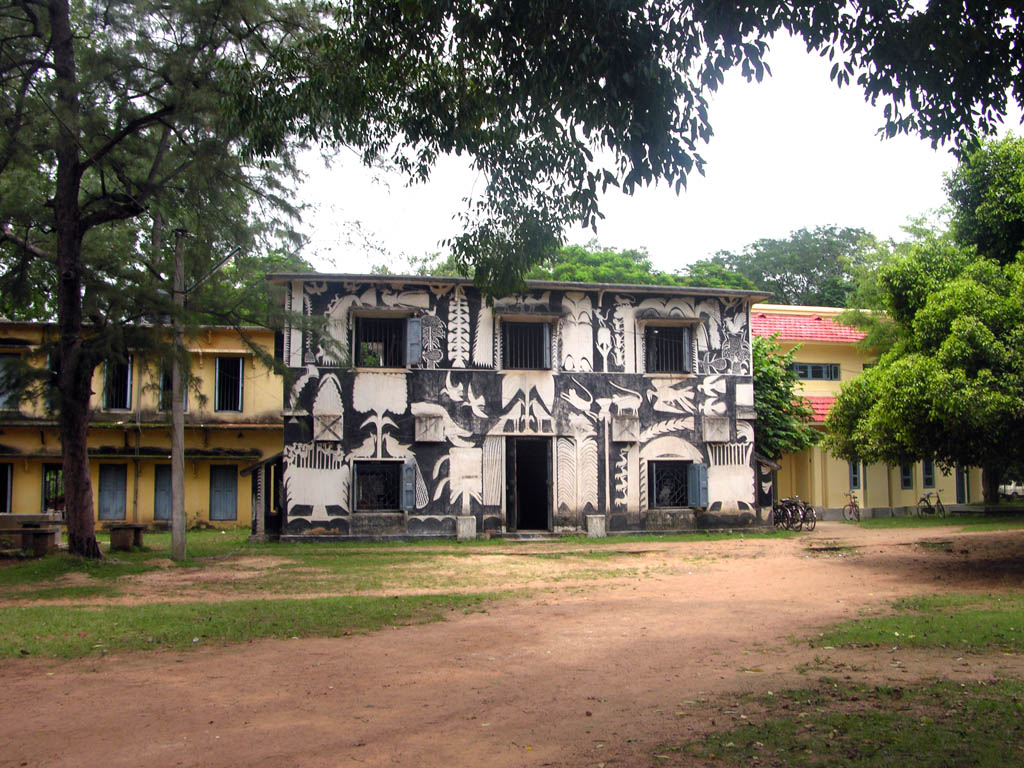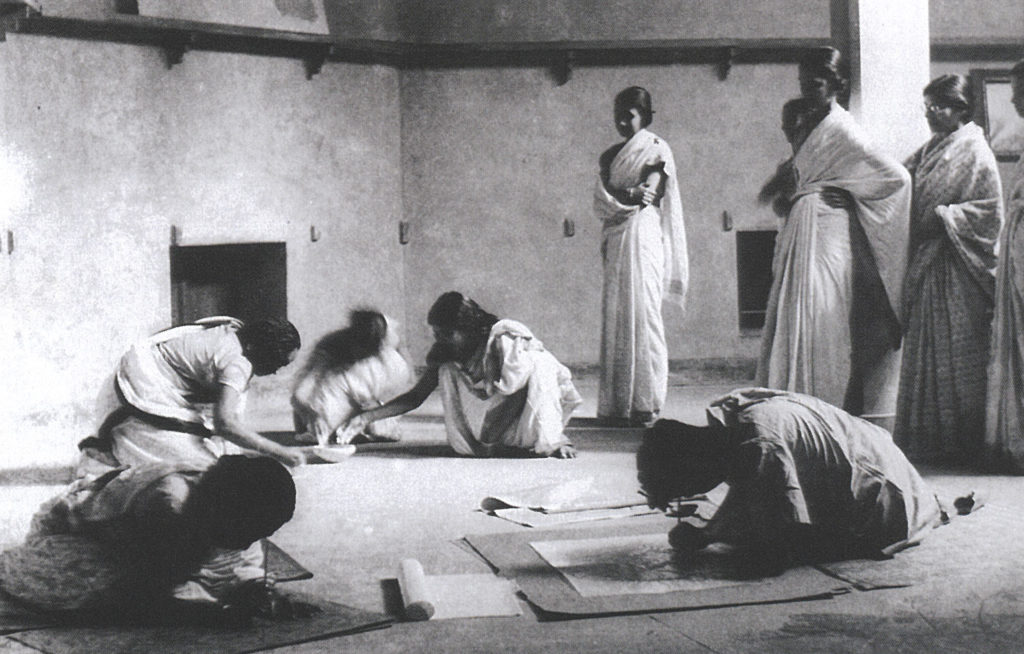Rabindranath Tagore, winner of the Nobel Prize in Literature, founded the world university Visva-Bharati in Shantiniketan in 1919. The Sanskrit name Visva-Bharati describes a “place of universal knowledge”. Tagore had already established a reform-oriented school in this location, 150 km north of Kolkata, in the early 1900s.
The educational reform put into practice in Shantiniketan is inextricably linked with India’s independence movement, entailing a return to India’s own rich cultural resources. At the same time, Tagore sought out an intensive exchange with the knowledge of the West. Shantiniketan was characterised by an alternative pedagogy: Teaching occurred through dance, theatre and play, the learning process was to take place intuitively, in contact with rural life and the natural surroundings, usually outdoors ‘in the shade of the mango trees’.
Srinitekan, located a mile away from Visva-Bharati campus in Shantiniketan, was a cornerstone of Tagore’s programme for agricultural renewal. Here, alongside the cultivation of the land, work focused on the revival of traditional crafts techniques like weaving and pottery. Shantiniketan and Sriniketan were closely connected. The campus is still used as a school complex today.
